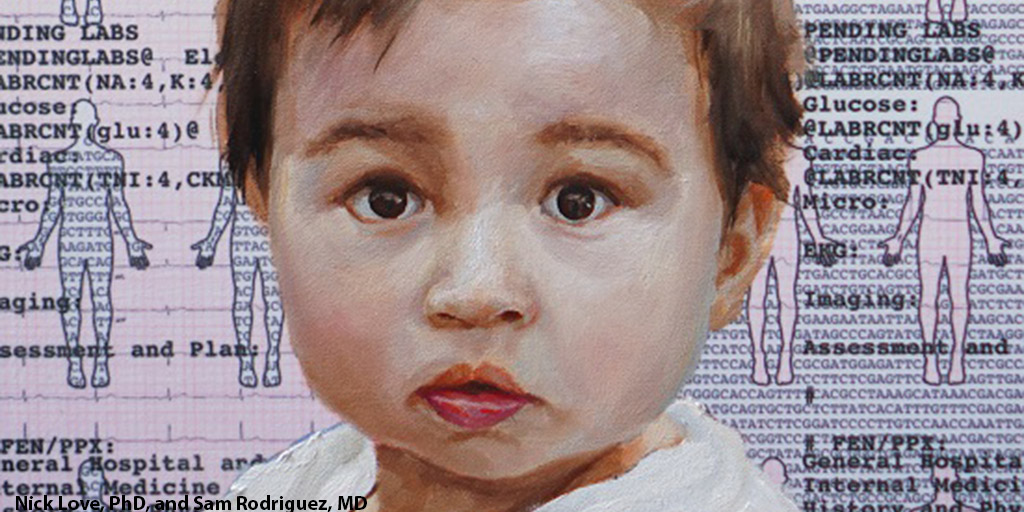In approaching the subject of ethics in precision health for a recent journal he edited, fifth-year Stanford medical student Jason Neil Batten aimed to spark discussions of the challenges clinicians face amid a fast pace of innovation in medical research, diagnostics and treatment.
Batten, a graduate fellow at the Stanford Center for Biomedical Ethics, said his interest in biomedical ethics is rooted in the belief that even brief encounters with the medical system can have a deep effect on patients and families facing "high-stakes medical decisions and medical realities." He's especially interested in the potential impact of data-driven health care on the doctor-patient relationship and on putting patients first.
Batten said he developed the American Medical Association's Journal of Ethics issue, published in early September, to advance the discussion about ethics in precision health, covering such issues as patient consent and privacy; research methodology, bias and population diversity; management and use of patient health information.
The journal features more than a dozen articles, a podcast and art from people at Stanford and elsewhere. Subjects include how a primary care physician should respond to a patient seeking feedback on consumer genetic test results; what can be learned from rare genetic disease research and translation; and how to promote inclusiveness in research.
Artwork by medical student Nick Love, PhD, and Samuel Rodriguez, MD, an assistant professor and pediatric anesthesiologist, overlays a portrait of a child onto a digital illustration of patient data. Called The Precision Portrait, the art is meant to represent the push-pull between the patient as an individual and the patient as a set of data points.
In an article by pediatrics instructor Anava A. Wren, PhD, and associate professor of pediatrics KT Park, MD, about managing treatment and drug dosages for children with inflammatory bowel disease, the writers discuss the ethics of performing repeated endoscopies on children with the disorder.
"The idea is that, to adopt a precision approach, physicians need more data," Batten said. "But they also have to weigh the benefits of obtaining this data against the cost of doing more endoscopies."
Three Stanford researchers, including postdoctoral research fellow Nicole Martinez-Martin, PhD, JD, and Laura Weiss Roberts, MD, chair of the Department of Psychiatry and Behavioral Sciences, examined concerns about privacy and consent from using a machine-learning tool to predict the success, over a year, of treatments for patients who enter a hospital with a first episode of psychosis.
Batten said he understands the desire to help such patients, but consideration should also be given to sensitivity of the diagnosis and the vulnerability of this population.
David Magnus, PhD, director of the Stanford Center for Biomedical Ethics, and Mildred Cho, PhD, center co-director, mentored Batten in the project.
Artwork by Nick Love and Samuel Rodriguez




